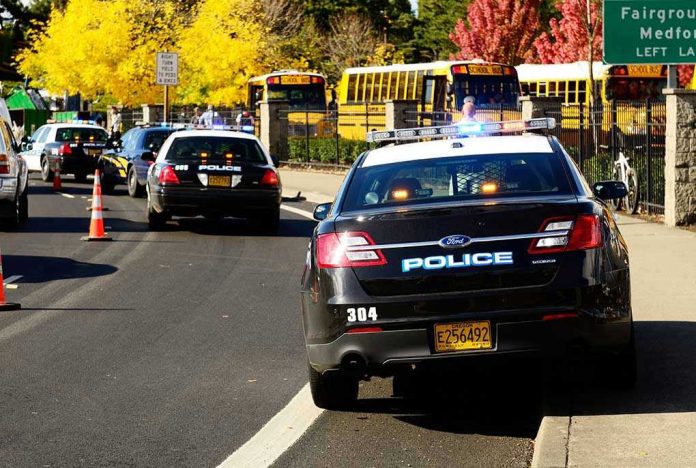
A transgender shooter targeted a Catholic school, raising questions about motive and ideological violence.
Story Highlights
- A transgender individual opened fire during a Mass at a Catholic school in Minneapolis, killing two children.
- The incident is being investigated as a hate crime and an act of domestic terrorism.
- The shooter, Robin Westman, legally changed her name in 2020 and identified as female.
- The attack has sparked debates on gun control, gender identity, and violence.
Incident Details and Background
On August 27, 2025, Robin Westman, a 23-year-old transgender individual, launched an attack at Annunciation Catholic School in Minneapolis during a morning Mass. Tragically, the shooting resulted in the deaths of two young children, aged 8 and 10, and injuries to 17 others, including 14 children and three elderly parishioners. Westman, who legally changed her name from Robert in 2020, died by suicide at the scene. Authorities, including the FBI, are treating this as a potential hate crime and act of domestic terrorism, given the targeting of a religious institution.
Westman’s diary entries, posted online days before the attack, reveal detailed planning and possible motives behind the assault. The shooter had a history of mental health struggles and a documented obsession with school shootings, dating back to her childhood. Her actions have sparked a significant investigation into the intersection of ideological motives and personal pathology, as law enforcement continues to piece together the full picture of events leading up to the attack.
Community and Political Reactions
The community of Annunciation Catholic School and Church is deeply affected by the tragedy. Vigils have been held to honor the victims and support those affected. In response to the incident, President Trump and Governor Tim Walz issued statements condemning the violence and calling for action to prevent further tragedies. Mayor Jacob Frey emphasized the need for policy changes to protect vulnerable places of worship and learning from such attacks.
The political discourse surrounding the shooting has intensified discussions on gun control, hate crimes, and the role of identity politics in acts of violence. The presence of LGBT-related symbols in the shooter’s materials has further complicated the narrative, leading to polarized views on the influence of gender identity in violent actions. While the investigation is ongoing, the case has already prompted calls for enhanced security measures in schools and religious institutions nationwide.
Security and Policy Implications
The attack underscores the urgent need for comprehensive threat assessment protocols in schools and places of worship. Security analysts advocate for improved background checks and risk assessments to identify potential threats early. The tragic event at Annunciation Catholic School serves as a stark reminder of the vulnerabilities faced by educational and religious communities in the current climate.
As Minneapolis residents and the broader faith community come to terms with the incident, there is increasing pressure on policymakers to address the root causes of such violence. The debate over gun rights and identity politics is set to continue, with potential legislative changes on the horizon. Meanwhile, the immediate focus remains on healing and supporting those affected by this senseless act of violence.



